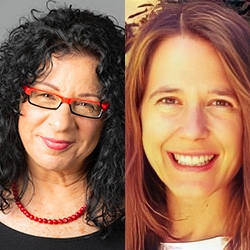
Search Results: systemic
-
-
This 6-session telecourse recording focuses on supporting people who work with children (e.g. parents, teachers, ministers, etc.) in applying the skills of NVC mediation in conflict situations that involve children.
-
Trainer Tip: The ways that we interact with our children shape the way they will interact in their world. How do your actions model compassion, tolerance, and love for your children?
-
In this stimulating audio recording, Stephanie Mattei covers several "hot" parenting topics such as: boundary issues, strategy resilience, how to shift your right/wrong mentality and understanding the concept of fairness. While unraveling these topics, Stephanie intersperses some practical neuroscience around brain regulation and brain-wise conflict prevention.
-
Workplace relationships are complex. Each employee brings their unique self to work. Their background, perspective, emotional triggers, and working style. Add to this the dynamics of power relations, and the fact that often workplace communication now takes place at our computer keyboards rather than face-to-face. Sylvia Haskvitz offers practical tips to make today's complex workplace relationships more satisfying and effective.
-
-
-
The human brain is a conservative organ that comprises different systems with varying degrees of conscious awareness, which evolved in three basic stages of human history (the lizard-squirrel-monkey brain.) In my understanding, we could say, the brain has strong needs for understanding, order, predictability and meaning. In fact, one of its key functions is to process experiences, and predict what the world is like, in order to maximize survival. CNVC Certified Trainer Stephanie Bachmann Mattei explores the biological basis of our inner jackal voices.
-
-
-
-
- Understand the essential relationship between personal healing and social change — and how to communicate it to others.
- Increase your compassion capacity for different ways of being in the world.
- Get clarity about the difference between equity and equality — and how to generate equitable processes in your communities and networks.
- Obtain tools to explore the various factors that contribute to your understanding of power and privilege — including your own.
-
Roxy Manning discusses the need to expand our understanding of observations within Nonviolent Communication (NVC). She challenges the idea of objective observation, noting its limitations, and introduces internal observations, citing personal experiences to illustrate their influence on emotions and self-perception. Additionally, she emphasizes systemic awareness as a crucial aspect of observation, highlighting its importance in understanding broader societal issues. Overall, Roxy advocates for a comprehensive approach to observations in NVC, incorporating external, internal, and systemic perspectives to foster inclusivity and empathy.
-
- Discover what is yours to do in response to our growing global crises
- Weave nonviolence more deeply into how you live and lead
- Receive ongoing support within and beyond the course in how to be effective and alive while doing what’s yours to do
- Increase your capacity to face and mourn current reality as a source of greater choice and energy
- Be a part of transforming the legacy of scarcity, separation, and powerlessness into a livable future
-
How can we mobilize this insight in support of our own and others' healing? These recordings will shed light on how the social context into which we are born affects our experience, and what we can do about it at the individual level within the paradigm of nonviolence.
-
- Discover what is yours to do in response to our global crises
- Weave nonviolence more deeply into how you live and lead
- Receive ongoing support in how to be effective and alive while pursuing your highest goals
- Increase your capacity to face and mourn current reality as a source of greater choice and energy
- Be a part of transforming the legacy of scarcity, separation, and powerlessness into a livable future
-
- Tune into your self-dialogue with a compassion that supports loving presence
- Shift limiting beliefs about your parenting patterns so you can choose consciously
- Transform frustration, confusion, or guilt into constructive, honest discussions
- Foster your ability to say yes and no in a way that supports your natural limits
-
The regeneration movement employs practices for healing our planet from damage, and boosting Earth sustainability. Environmental and social degradation is deeply connected -- as it comes from the same extractive, exploitive mindset of economic and related systems. Connecting with universal consciousness and needs underlying conflicts, we connect with commonality of all planetary life. This helps tap new abilities for working together. This can contain power to regenerate and heal ourselves and Earth.
-
Aya Caspi delves into the impact of societal structures and parenting approaches on individuals, particularly the prevalence of extrinsic motivation rooted in fear of punishment, desire for rewards, and a sense of obligation. The emphasis is on how these dynamics contribute to collective trauma and affect brain development. Examples, such as Hitler's childhood and the adverse effects of the educational system, are used to illustrate the consequences of such practices. Aya advocates for systemic change in these structures and emphasizes the role of non-judgmental practices in potentially reducing adult depression. The discussion highlights the importance of empathy and challenges the traditional methods that may lead to emotional neglect and trauma, emphasizing the potential benefits of embracing non-judgmental approaches in parenting and societal frameworks.
-









